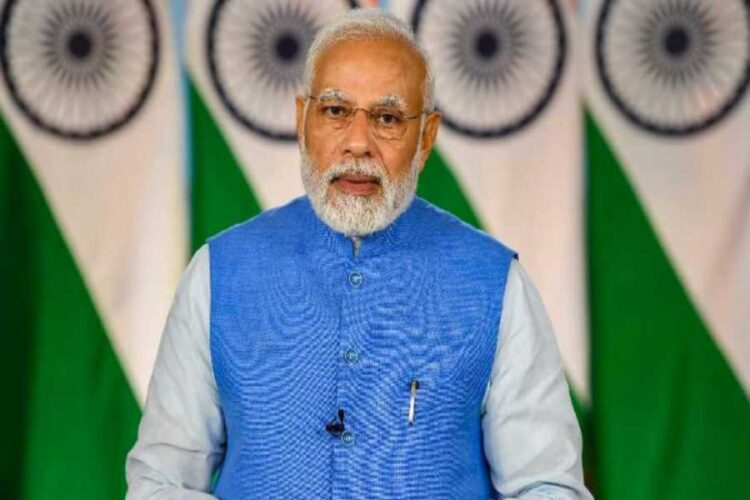Prime Minister Narendra Modi on Friday said the laws such as UAPA (Unlawful Activities (Prevention) Act ) had given “an impetus to probe agencies in a decisive fight against terrorism.” He was addressing a ‘Chintan Shivir’ of Home Ministers and DGPs of States in Faridabad via video conferencing.
“The intellectual capacity should be increased to defeat the forces that could destroy the unity of the country by exploiting the emotions of the youth,” Modi said.
The Prime Minister said the police should be equipped to face not only those Naxals who hold a gun but also those who wield a pen and mislead the youth by exploiting their emotions. He said such forces who get “international support” should not be allowed to take roots as they were detrimental to the unity and integrity of the country.
India’s harshest anti-terror law, UAPA, allows authorities to designate someone as a “terrorist” and detain them without producing any incriminating evidence. The much criticised law also has stringent requirements for granting bail, which means individuals often spend months, sometimes years, in jail without being found guilty.
The UAPA was first introduced in 2008 by Congress party. In 2019, Prime Minister Narendra Modi’s Hindu nationalist government amended the law, allowing authorities to categorise individuals as terrorists. Previously, the designation was reserved only for organisations.
The recent years have seen it used with increasing frequency. In recent years, scores of journalists, human rights activists and students mostly from Muslim community have been booked under UAPA, leading to widespread criticism of the law.
Based on data from India’s National Crime Records Bureau, less than 3% of the arrests made under the draconian Unlawful Activities (Prevention) Act between 2015 and 2020 have resulted in convictions.
Out of 8,371 persons arrested under India’s top terror law, only 235 were convicted in the five-year period, the People’s Union of Civil Liberties report showed, citing data from the National Crime Record Bureau.
The acquittal rate of the draconian law is 97.2%, the report said, claiming that the prosecution under UAPA lack merit in huge majority of the cases.
The loose definition of “terrorist act” under UAPA has made the provision a “draconian and undemocratic one,” said the report “UAPA: Criminalising Dissent and State Terror.”
Responding to PM Modi’s latest remarks on UAPA, the vocal Muslim leader and four time MP Asaduddin Owaisi MP tweeted: “Under #UAPA 4690 people were arrested in 2018-2020, but only 3% were convicted. PM is right, UAPA gives his govt power to jail anyone without accountability. UAPA is an evil law, it does nothing to stop terrorism.”
He said a piece of single fake news had the capability to snowball into a matter of national concern. He expressed concern about the losses that India had to face due to fake news about job reservations in the past. He stressed the need to educate people about analysing and verifying any piece of information before forwarding it to others. “We have to come up with technological advancement to face a fake news-driven society,” he added.
Need for technology
Mr. Modi said the 5G technology, along with its benefits, brings the need for a heightened alert. He requested the Chief Ministers and Home Ministers to seriously assess the need for technology, going beyond the constraints of the budget as this technology would percolate the confidence of security among common citizens.
Earlier, speaking at the conference, Home Minister Amit Shah said discussions were held on digitisation of birth and death registration certificates and the inertness of States to send Indian Police Service (IPS) officers on deputation to Centre.








